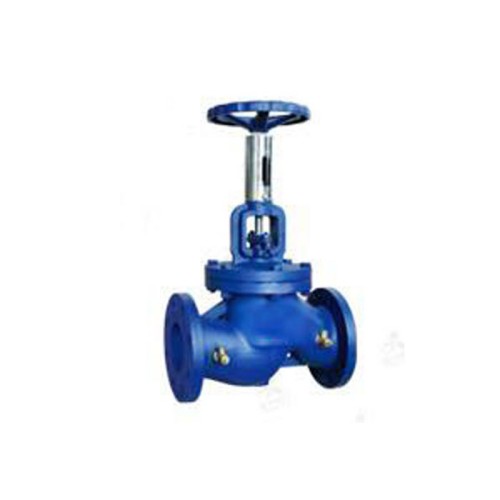ductile iron gate valve
Understanding Ductile Iron Gate Valves Features, Applications, and Benefits
Ductile iron gate valves are essential components in various industrial applications, primarily used to control the flow of fluids in pipelines. Known for their durability, strength, and resistance to corrosion, these valves have become a popular choice in waterworks, oil and gas, and wastewater treatment facilities. This article will delve into the features, applications, and advantages of ductile iron gate valves, providing a comprehensive overview for professionals and engineers in the field.
What is Ductile Iron?
Ductile iron, also known as spheroidal graphite iron, is an alloy that contains small amounts of carbon and silicon, which are transformed into graphite nodules during the casting process. This unique microstructure gives ductile iron its remarkable mechanical properties, including high tensile strength, ductility, and toughness. Compared to traditional cast iron, ductile iron has superior impact resistance and is less brittle, making it ideal for high-stress environments.
Features of Ductile Iron Gate Valves
Ductile iron gate valves come equipped with several design features that enhance their performance and reliability
1. Body Construction The valve body is constructed from high-strength ductile iron, providing increased durability while allowing for reduced wall thickness compared to conventional cast iron valves.
2. Seating Surface Options Many ductile iron gate valves come with various seating surface materials, such as metal-to-metal, resilient rubber, or Teflon, which cater to different fluid media and operational conditions.
3. Size Range These valves are available in various sizes, typically ranging from 2 inches to 72 inches in diameter, making them suitable for both small and large-scale applications.
4. Pressure Ratings Ductile iron gate valves can handle various pressure levels, often rated up to 250 psi or more, depending on the design and the manufacturer.
5. Corrosion Resistance Ductile iron valves can be coated with several materials, such as epoxy or polyurethane, to enhance their resistance to corrosive environments, thus prolonging their lifespan.
6. Actuation Ductile iron gate valves can be operated manually via a handwheel or be automated with actuators for remote operation in larger systems.
Applications of Ductile Iron Gate Valves
ductile iron gate valve

Ductile iron gate valves find their application across various industries, including
- Water Supply Systems Used in municipal water distribution networks to control water flow and pressure, ensuring a steady supply of clean water to consumers.
- Wastewater Treatment Employed in sewer systems and treatment plants to manage the flow of wastewater and prevent backflow, thereby protecting public health and the environment.
- Oil and Gas Utilized in pipelines to regulate the flow of oil, natural gas, and other hydrocarbons, these valves play a critical role in maintaining safety and efficiency in energy distribution.
- Fire Protection Systems Integrated into fire suppression systems, ductile iron gate valves enable quick access to water in emergencies, ensuring effective firefighting measures.
Advantages of Ductile Iron Gate Valves
The use of ductile iron gate valves comes with numerous benefits
1. Longevity Their robust construction and resistance to wear and corrosion ensure that these valves last longer compared to other materials, resulting in lower replacement costs over time.
2. Cost-Effectiveness Although the initial investment may be higher than alternatives, ductile iron gate valves provide greater overall value due to their durability and reduced maintenance requirements.
3. Versatility Their ability to function effectively under various temperatures and pressures makes them suitable for a wide array of applications across different industries.
4. Ease of Maintenance Ductile iron gate valves typically require minimal maintenance, as their design allows for easy access to internal components, facilitating quick repairs and reduced downtime.
Conclusion
Ductile iron gate valves are a vital asset in the fluid control systems of numerous industries. Their strength, durability, and resistance to corrosion allow them to perform reliably in demanding environments. Understanding the features, applications, and advantages of ductile iron gate valves can help engineers and professionals make informed choices that enhance operational efficiency and safety. As industries continue to evolve, the demand for reliable and resilient components like ductile iron gate valves will undoubtedly grow, ensuring their place in the future of fluid management technology.
-
The Key to Fluid Control: Exploring the Advantages of Ball Valves in Industrial SystemsNewsJul.09,2025
-
The Versatile World of 1, 2, and 3 Piece Ball ValvesNewsJul.09,2025
-
Stainless Steel Ball Valves: The Ideal Choice for Efficient Flow ControlNewsJul.09,2025
-
Optimizing Fluid Control with Ball Float ValvesNewsJul.09,2025
-
Manual Gate Valves: Essential for Control and EfficiencyNewsJul.09,2025
-
Everything You Need to Know About Butterfly ValvesNewsJul.09,2025
-
The Versatility of Wafer Type Butterfly ValvesNewsJul.08,2025




